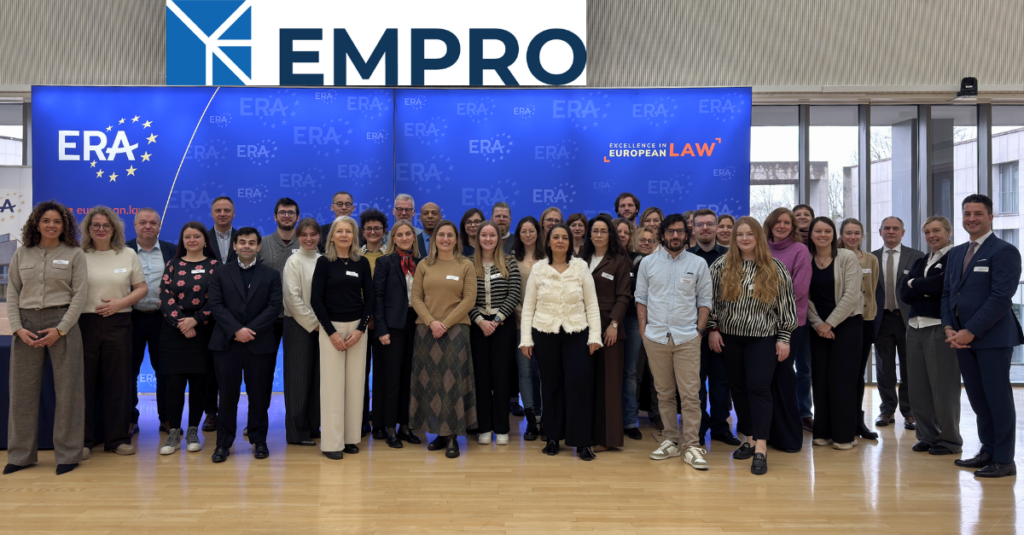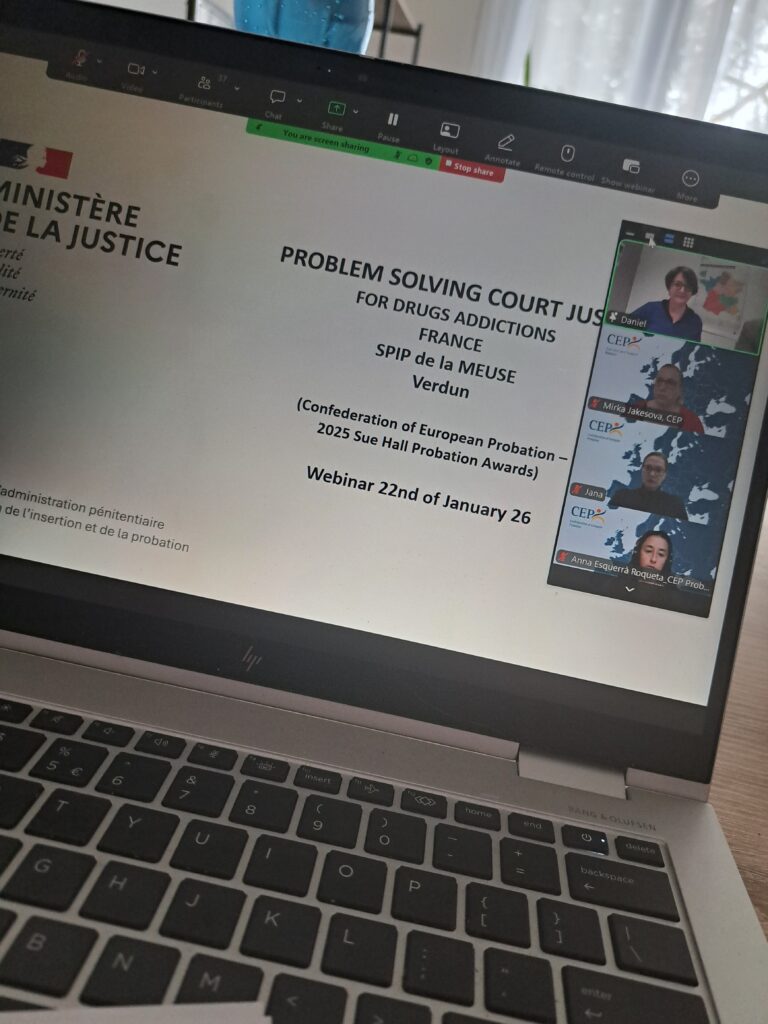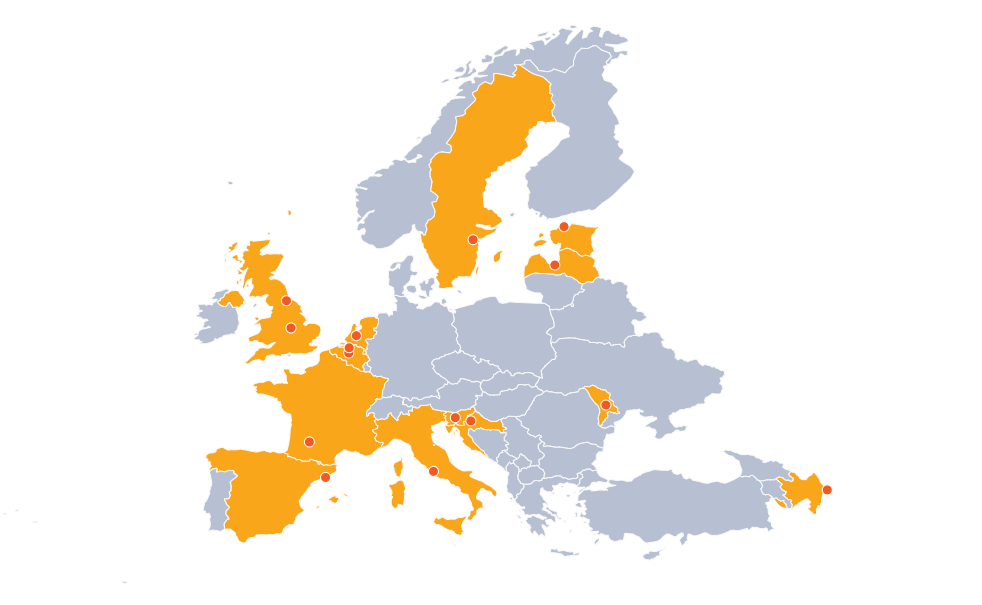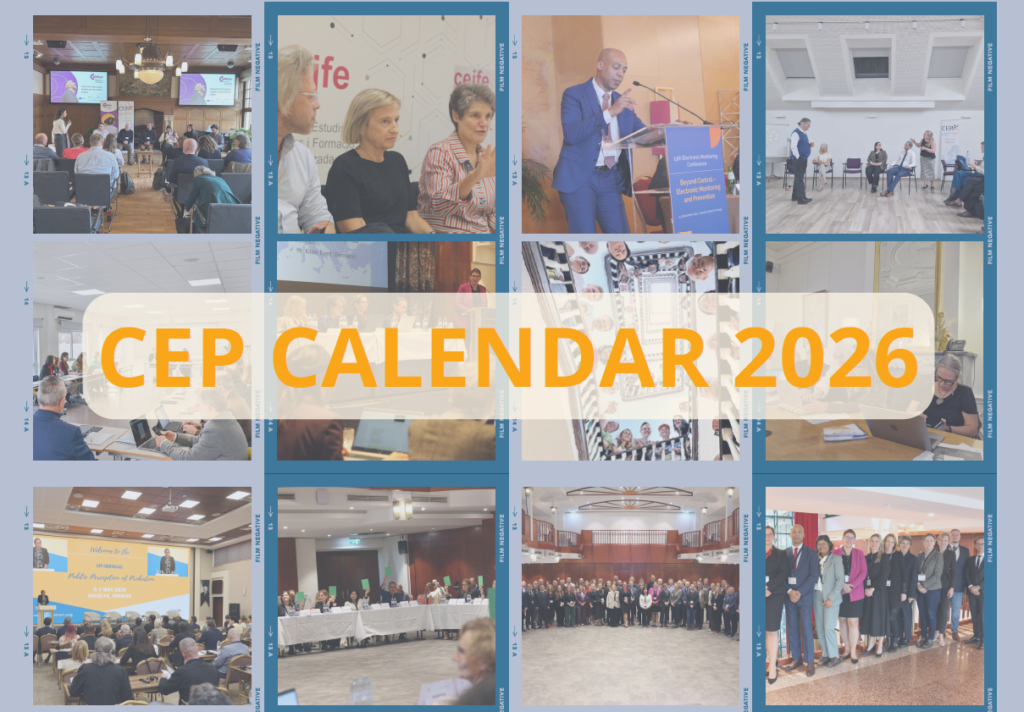Previous Article
News
Offender supervision in Denmark: The MOSAIK-model
In August 2010, the director of the Danish Probation Service, Kriminalforsorgen, attended a presentation of a report about Strategic Training Initiative in Community Supervision (STICS) by Dr. James Bonta. This is where evidence based community supervision caught his interest for the first time. A report on the work of probation officers in Denmark showed that they were missing a uniform evidence based assessment procedure or supervision method for working with the most difficult clients. It was not possible to implement the STICS method at that time, therefore the Danish Probation Service decided to develop their own tool for offender supervision, Motivational Interventions in Probation Services (MOSAIK). Together with Marianne Fuglestved, from the Directorate of Prison and Probation Service Denmark, we look back at how MOSAIK was developed and implemented.
When did you start with developing MOSAIK?
At first, the directorate wanted to implement the STICS method, but at the same time James Bonta and his colleagues were implementing it in the Swedish Probation System. They generously let us look into STICS for inspiration in our process of developing our own supervision model. This project started in 2013. The first three persons that we hired to work for our RNR-team, attended STICS training in Canada. Later on, four others joined the team and the supervision model MOSAIK and the RNR-intervention for prisons MOVE, were developed.
How was MOSAIK implemented after the development?
All the probation officers in Denmark (about 300) in twelve local community supervision units, have been trained and are certified in the use of LS/RNR. They also followed a special training to work with MOSAIK. This training consisted of five days of basic training, two days of follow-up training, a monthly training group in the units and three feedback moments on MOSAIK sessions that are recorded. MOSAIK-training is continuous, after probation officers finish their basic training, they will receive feedback on two MOSAIK sessions per year and they continue to attend a monthly training group.
In what way does MOSAIK reduce recidivism?
MOSAIK is designed to meet the criminogenic needs of clients with a medium to very high risk profile. A combined theoretical and methodological-approach (cognitive behavioral theory, social learning theory and desistance theory combined with motivational interviewing), forms the model for change in this supervision model.
MOSAIK reduces recidivism in different ways.:
- By giving the client a clear role as an active participant in his own change process with the probation officer as his mentor;
- By introducing stepwise learning, with setting longterm and shortterm goals;
- By discussing the criminogenic needs of the client and train them to regulate these needs and supporting appropriate and pro-social behavior;
- The structured agenda that is set up for every MOSAIK meeting supports the clients cognitive development
Long term effect of MOSAIK has not been tested yet, the first long term tests start this year.
How did the offenders and probation officers react on MOSAIK?
Process evaluation shows, that MOSAIK is meaningful to probation officers in their rehabilitation work with clients with medium to very high risk-need level. Probation officers also emphasize the usefulness of having a uniform method for professional development and exchange.
Overall the clients also express satisfaction with the new model. They feel MOSAIK supports them in changing their behavior in a direction they want, and that community supervision has become meaningful.

Related News
Keep up to date with the latest developments, stories, and updates on probation from across Europe and beyond. Find relevant news and insights shaping the field today.
New

Uncategorized
CEP at the EMPRO Symposium hosted by ERA
04/02/2026
CEP actively contributed to the EMPRO Knowledge Exchange Symposium hosted by the Academy of European Law (ERA) in Trier on 28–29 January, bringing together practitioners, policymakers, and researchers to reflect on the implementation of EU Framework Decisions in probation and supervision.
New

Alternatives to pre-trial detention, Community Sanctions and Measures, Framework Decisions, Technology
Future of Criminal Justice: CEP’s Contribution to Key 2025 Dialogues
27/01/2026
Throughout 2025, CEP and its representatives actively participated in the online Technical meetings ahead of the HLF as well as the High Level Forum on Future of Criminal Justice taking place on 4-5 March 2025, 20-21 May 2025 and 1-2 October 2025 in Brussels, Belgium.
Recap

Alternatives to pre-trial detention
Recap: Webinar on Alternatives to Detention 2026
26/01/2026
On Thursday 22 January, CEP hosted the first webinar of 2025 on the topic of Alternatives to Detention. The session led by Ms. Marina Pajoni from the French Prison and Probation Service titled „Problem Solving Justice in Pracitce: The Meuse Probation Service´s Approach to Drug Addiction“ introduced an innovative programme developed by the Meuse Probation Service in close cooperation with the French Ministry of Justice.
New

Education and Training
CEP launches an interactive European map of probation education and training institution contacts
22/01/2026
The CEP is pleased to inform its members that a new dedicated section has been developed on the CEP website featuring an interactive map of Europe.
New

CEP Events
CEP activity calendar 2026
20/01/2026
As we begin the new year, we would like to thank all CEP members, partners, and participants for your continued engagement and valuable contributions. Your involvement plays an essential role in shaping CEP’s work and activities.
We are pleased to share the CEP calendar for 2026, which provides an overview of the events planned for the year ahead. We look forward to continuing our collaboration and welcoming you to upcoming CEP activities throughout the year.
Thank you for being part of the CEP community.
New

CEP members, Gender-based violence
Interventions Alliance’s Eden House Recognized as Outstanding
15/01/2026
CEP is delighted to share that Eden House, an Interventions Alliance residential service for women with high-risk or complex needs on probation, has been rated “Outstanding” overall by HM Inspectorate of Probation. In 2022, Eden House was honored with the CEP Public Protection Award. Our sincere congratulations to the team for this remarkable achievement.
Subscribe to our bi-monthly email newsletter!
"*" indicates required fields
- Keep up to date with important probation developments and insights.

